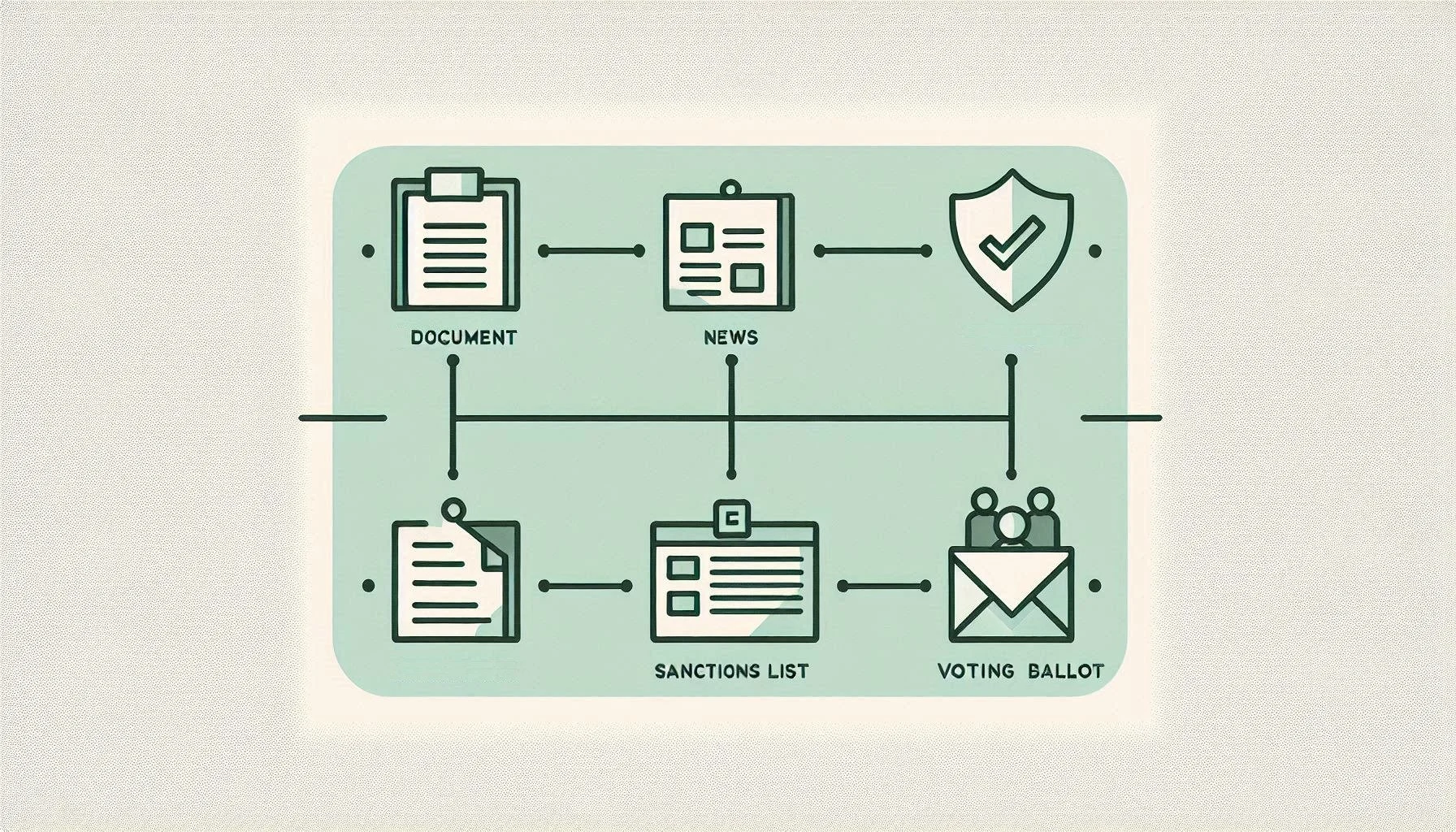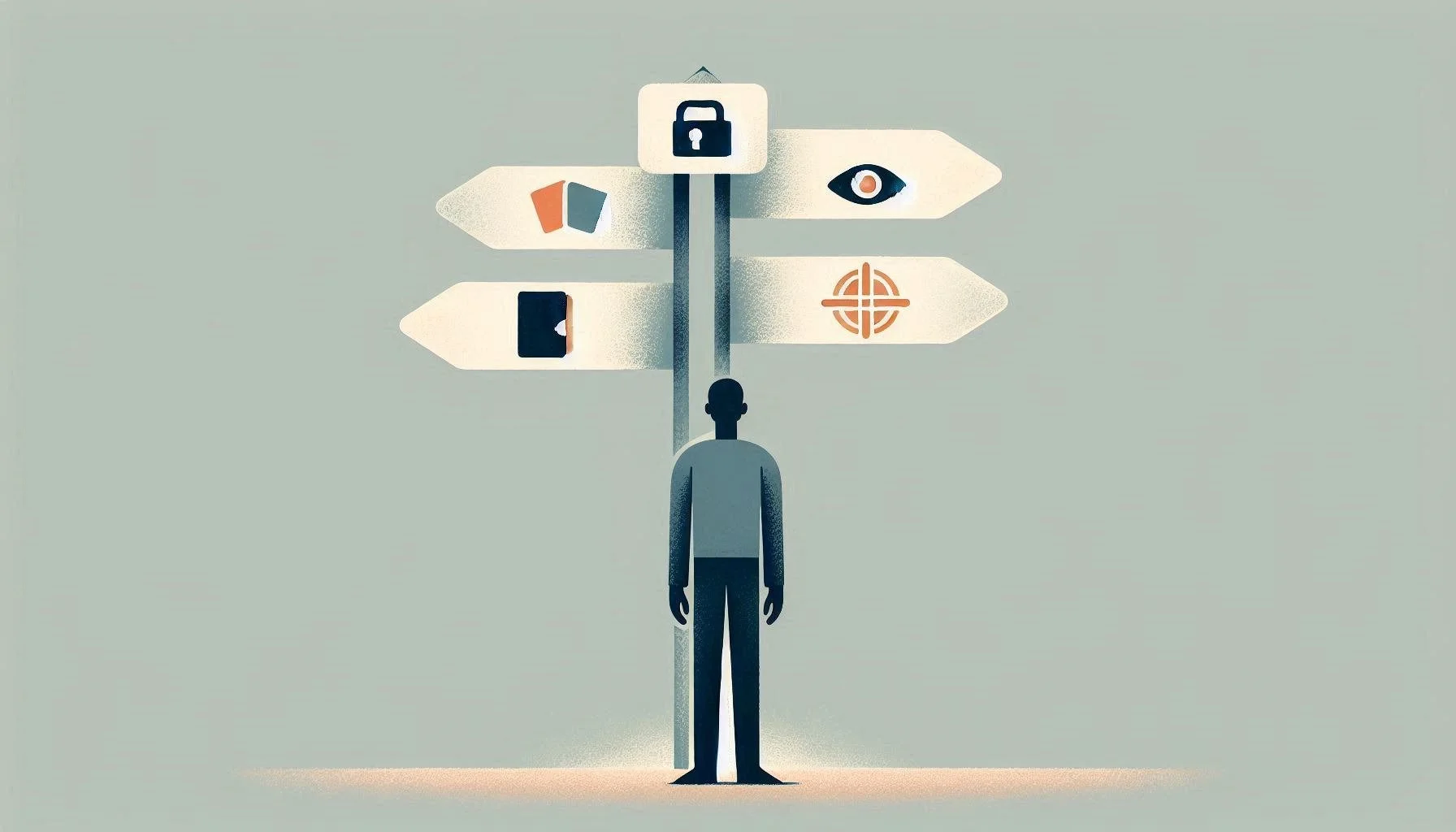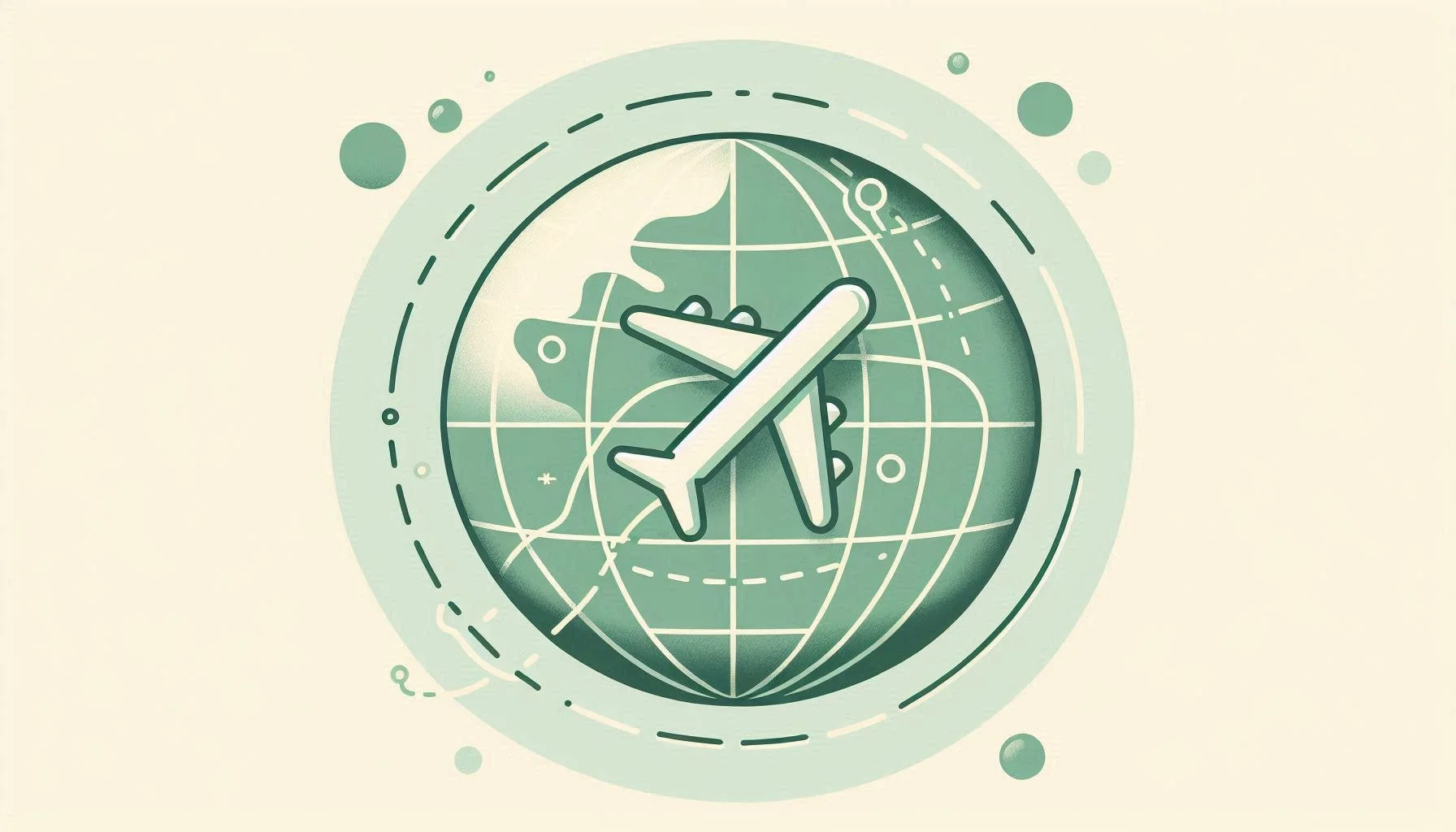How to Check if a Country Cooperates with a Repressive Regime
In today's world, where the geopolitical situation changes daily, understanding a country's political ties is critically important for those planning evacuation, relocation, or temporary stay abroad. Cooperation with repressive regimes can create serious risks to personal safety: from surveillance and restrictions on freedom to extradition or digital control.
This is especially relevant for those who follow the grayman concept - striving to remain unnoticed, autonomous, and protected. It also applies to the prepper community preparing for emergencies, and to those planning a bugout - a rapid departure from a dangerous zone.
The purpose of this article is to provide a clear verification algorithm that will allow you to assess whether a country cooperates with repressive regimes and make an informed decision regarding the safety of relocation or stay.
Why This Is Critical for Grayman, Prepper, and Bugout
For those who adhere to the grayman concept, prepare a bugout plan, or belong to the prepper community, choosing a country for evacuation or temporary stay is not just a matter of logistics or climate. It is, above all, a matter of safety, which directly depends on the international alliances and political ties of the chosen state.
Impact of International Alliances on Safety. Countries with close political, military, or intelligence ties to repressive regimes may exchange information about foreigners, coordinate intelligence operations, or even fulfill extradition requests. For a traveler or evacuee, this means that even thousands of kilometers away from a conflict zone, they may still be under surveillance or become a target of persecution.
Real Examples of Risks. History knows cases where cooperation between states led to the detention and deportation of individuals seeking asylum. In some cases, this happened through extradition agreements; in others, through informal arrangements between intelligence services. There are also known situations where countries transferred surveillance technologies or databases, allowing the tracking of movements and communications of people trying to remain unnoticed.
Impact on the Ability to Remain Unnoticed and Autonomous. For a grayman, the priority is blending in with the environment and leaving no "traces" that might attract attention. But if a country actively cooperates with a repressive regime, even following all stealth rules does not guarantee safety. Mass surveillance systems, biometric data sharing, and control over movement and digital communications can destroy autonomy and threaten freedom of action.
Thus, for those planning a bugout or acting according to prepper and grayman principles, verifying a country's political ties is not a formality but a key stage of planning that can determine the success or failure of the entire evacuation operation.
Sources for Verification
To reasonably assess whether a country cooperates with repressive regimes, reliable sources of information must be used. They allow you to obtain an objective picture of political ties, international agreements, and practices that may affect safety.
Official Government Resources. Websites of ministries of foreign affairs, internal affairs, defense, as well as official statements from government officials. They may contain information about international agreements, political positions, and cooperation with other states.
International Organizations. Such as the UN, Amnesty International, Human Rights Watch, Freedom House. Their reports and rankings allow you to assess the level of human rights compliance, the presence of repressive practices, and the political stance of a country.
Investigative Journalism and Independent Media. These sources often highlight informal agreements, scandals, and facts of intelligence cooperation that do not appear in official documents.
Sanctions Databases. For example, the sanctions lists of the EU, USA, and UN. They show whether a country supports or cooperates with regimes that violate human rights.
Analytical Centers and Think Tanks. Independent research organizations that publish analyses on international politics, security, and human rights.
OSINT Tools. Open-source intelligence tools allow you to independently collect data from public sources: maps, databases, social media, government websites. They are especially useful for those seeking autonomy and independence from centralized sources.
Signs of Cooperation with a Repressive Regime
You can identify whether a country cooperates with a repressive regime by a number of characteristic signs. For grayman, prepper, and those planning a bugout, these signals are warnings about potential risks of staying in or transiting through such a state.
Extradition Agreements with Countries That Have Repressive Governments. If a state has signed and actively enforces extradition agreements with regimes known for persecuting opposition, journalists, or activists, this means that staying in such a country may be dangerous for those who fall within the scope of these regimes.
Joint Military, Security, or Intelligence Projects. Cooperation in defense or security with repressive governments often involves sharing intelligence data, surveillance technologies, and methods of population control. This increases the risk of digital and physical monitoring.
Regular Diplomatic Visits and Public Support for Repressive Regime Policies. Frequent official meetings, joint statements, and demonstrative support for political decisions of repressive states indicate close ties that may influence domestic policy and security practices.
Trade Agreements in Surveillance Technology or Weaponry. Supplying or purchasing video surveillance systems, internet traffic monitoring software, and weapons used to suppress protests is a direct indicator of cooperation in repressive technologies.
Voting in International Organizations in Favor of Repressive Regimes. A country's voting record in the UN or other international bodies can show whether it supports the policies of states that violate human rights.
Verification Algorithm
To ensure the assessment is as objective as possible and not based solely on rumors or isolated news, it is worth following a clear algorithm. This will help compile a complete picture and identify risks in time.
Step 1: Collect Official Information. Check the websites of government agencies, international organizations, and official publications. Pay attention to international agreements, especially in the areas of security, defense, and justice.
Step 2: Cross-Analyze News. Compare information from several independent sources - both local and international. This will help identify discrepancies and understand whether there are hidden aspects to the topic.
Step 3: Check Sanctions Lists. Review current sanctions databases from the EU, USA, UN, and other entities. If a country maintains close economic or political ties with states sanctioned for human rights violations, this is a significant risk signal.
Step 4: Analyze Positions in International Votes. Review how the country votes in the UN and other international organizations on resolutions related to human rights and democracy. Consistent support for repressive regimes is a troubling indicator.
Step 5: Assess Risks to Personal Safety. Based on the collected data, determine whether there is a threat to your autonomy, privacy, and physical safety. For grayman, prepper, and bugout scenarios, this is critical for choosing a safe destination.
Risk Assessment for Grayman, Prepper, Bugout
After gathering and analyzing information, it is important not just to know the facts but to interpret them correctly in the context of your own safety. For grayman, prepper, and those planning a bugout, risk assessment is a key stage that determines whether a country should be considered a safe destination.
Risks to Physical Safety. If a country has close ties to a repressive regime, there is a likelihood it may fulfill requests for detention or extradition. This is especially dangerous for those in political or legal risk zones.
Risks to Privacy and Digital Security. Intelligence data sharing, joint surveillance programs, and the use of control technologies can lead to the collection of your personal data, monitoring of communications, and tracking of movements.
Risks to Autonomous Movement. In countries that cooperate with repressive regimes, there may be travel restrictions, enhanced passport control, document checks, and other measures that complicate free movement.
Potential Threat Scenarios. Detention at the border due to database matches. Denial of entry or deportation without explanation. Monitoring and restriction of internet or mobile access. Use of biometric data for identification and tracking.
Conclusion for the Assessment Stage. If the risks exceed your acceptable level, it is worth excluding the country from your list of potential destinations or developing an alternative route. For grayman, this means maintaining stealth; for prepper, ensuring safety; and for bugout, a successful and secure evacuation.
Alternatives and Safe Options
After identifying risks, it is important to have a list of countries or regions that can serve as safe alternatives for evacuation or temporary stay. For grayman, prepper, and bugout scenarios, this means not only avoiding dangerous destinations but also choosing places that best meet the requirements of safety, autonomy, and discretion.
Choose states that consistently rank high in international democracy and freedom of speech ratings and have independent judicial systems. Such countries are less likely to cooperate with repressive regimes and more inclined to protect the rights of foreigners.
Use of Freedom and Democracy Indices. Indices like Freedom House, Democracy Index, or World Press Freedom Index help quickly assess a country's political and legal climate. This is a convenient tool for preliminary selection of safe destinations.
Regional Safe Hubs. Some regions have cities or countries traditionally considered safe for transit or long-term stay. They may have developed infrastructure for foreigners, stable economies, and low levels of corruption.
Review of International Behavior History. Study how the country acted during past crises: whether it provided asylum to refugees, adhered to international norms, and avoided participation in repressive alliances.
Planning Multiple Options. Do not limit yourself to one destination. Have at least two or three alternative routes or countries so you can quickly adjust your plan if the situation changes.
Useful Resources for Verification
Freedom House - https://freedomhouse.org Publishes Freedom in the World annually - a global index of political rights and civil liberties. Helps quickly assess the level of democracy and freedom in a country.
Human Rights Watch - https://www.hrw.org An international human rights organization that prepares detailed reports on human rights violations, including analysis of political ties and repressive practices.
Amnesty International - https://www.amnesty.org Publishes current data on political persecution, torture, restrictions on freedom of speech, and other human rights violations.
OSINT Combine - https://www.osintcombine.com A platform with open-source intelligence tools that help collect and analyze data from public sources independently.
EU Sanctions Map - https://www.sanctionsmap.eu An interactive map of European Union sanctions showing which countries, organizations, and individuals are subject to restrictions.
U.S. Department of State - https://www.state.gov An official resource with sections on international agreements, sanctions, and safety recommendations for travelers.
United Nations Voting Records - https://digitallibrary.un.org A database of UN General Assembly votes that allows tracking a country's position on resolutions related to human rights.
FAQ: Frequently Asked Questions
Should I avoid countries that have extradition agreements with repressive regimes?
Yes. If you are in a risk zone or have a conflict with a regime that a country cooperates with, such an agreement can pose a direct threat to your safety.
Can I rely solely on official government statements?
No. Official statements should be cross-checked with independent sources, international organizations, and investigative journalism to avoid biased information.
How often should I update information about a country's political ties?
Before each trip or route change. The geopolitical situation can change within weeks.
Are there "absolutely safe" countries?
No. Even stable democracies can shift political direction, so it is important to regularly verify current information.
How can I remain unnoticed in a country with potential risks?
Maintain a neutral style of dress and behavior, avoid political discussions, minimize your digital footprint, and use secure communication channels.
Conclusion
Verifying a country's political ties before evacuation, relocation, or even short-term stay is not a formality but a vital preparation step. For grayman, prepper, and those planning a bugout, this information can be decisive in maintaining safety, autonomy, and discretion.
International alliances, extradition agreements, joint security projects, and a country's position in global politics directly affect whether it becomes a safe haven or a source of new threats. Using verified sources, analyzing signs of cooperation with repressive regimes, and following a clear verification algorithm allow you to act based on facts rather than blindly.
Regular data updates, having multiple alternative destinations, and readiness to change plans quickly are the keys to successful evacuation and maintaining control over your safety. In a world where political realities can change in days, informational preparation becomes as important as physical gear.
Disclaimer
This material is provided for informational purposes only and does not constitute legal, political, financial, or security advice. The author is not responsible for any decisions or actions taken based on the information presented. Geopolitical situations, international relations, and other factors may change rapidly, so always verify data from multiple independent sources and consult qualified professionals when necessary.
Looking for more? Check out our other pieces on gray man, bugout, and prepper skills
The Psychology of the Gray Man: How to Disappear in a Crowd
How to Disappear Without a Trace: Safety Techniques
How to Avoid Unwanted Questions - Smart Communication Strategies
Why Language, Culture, and Climate Matter During Evacuation
Ethics and Morality: When Being a "Gray Man" Can Be Helpful or Dangerous
The Digital Shadow in a World of Surveillance. Honest review of NordVPN
Honest Review of Surfshark VPN: How It Can Assist in Grayman, Prepper, and Bugout Approaches














